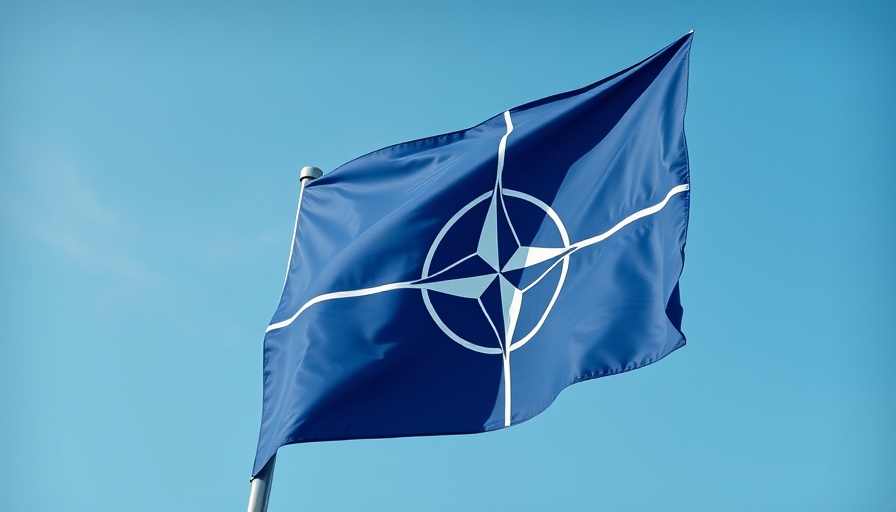
Understanding NATO’s Article 4 in a Time of Tension
The recent incursion of Russian drones into Polish airspace has sparked a swift reaction from NATO, underscoring the significance of Article 4 of the NATO Treaty. This article, which allows member states to consult with one another whenever a party feels that its security is threatened, was brought into focus during the emergency meetings held at NATO headquarters. Polish Prime Minister Donald Tusk highlighted that this situation warranted immediate discussions among NATO allies, reinforcing the alliance's commitment to collective security.
Why Article 4 Matters: Historical Context
NATO was formed in 1949 as a collective defense mechanism following the devastation of World War II, aiming to promote peace and stability in the North Atlantic region. As an organization comprised of 32 member states, its core principle remains collective defense. Article 4 acts as a crucial bridge between the more severe Article 5, which calls for collective defense, and routine operations of the alliance. It fosters a platform for dialogue and coordination without escalating conflicts into full-blown war. The current drone incidents serve as a reminder of NATO’s vital role in addressing emergent threats and maintaining international order.
The Current Russian Threat: A Broader Perspective
The incursion followed Russia's extensive aerial assault on Ukraine, raising alarm bells not only in the Baltic region but across Europe. Bob Deen, an analyst at the Clingendael think tank, suggests that Article 4 encourages immediate discourse on such threats. The coordinated response from Polish and Dutch fighter jets showcases Europe’s readiness to defend its skies, but it also signifies heightened tensions that could spiral without diplomatic engagement.
Future Predictions and Strategic Insights
Given the growing frequency of Russian military engagements close to NATO borders, we can anticipate that Article 4 may be invoked more often in the future. As incidents increase, member states will likely enhance their military preparedness and further invest in collective defense strategies. Additionally, strategic partnerships with non-member states may emerge, aligning interests in countering aggressive actions and safeguarding sovereignty.
Counterarguments: Diverse Perspectives on NATO's Role
While many advocate for NATO's strong stance against aggression, critics argue that such actions may provoke further hostilities rather than promote peace. Some analysts suggest that NATO's framework can provoke anxiety among nations, asserting that diplomacy should precede military readiness. The challenge will be finding a balance between demonstrating strength and engaging in constructive dialogue to de-escalate tensions.
Practical Insights: What This Means for Member Nations
Member nations must be vigilant and proactive in their defense strategies. This involves not only maintaining heightened alertness within military operations but also ensuring that civil societies understand the implications of joint agreements. Through education and comprehensive communication, NATO can instill a sense of unity and purpose among citizens, fostering a shared commitment to collective security.
FAQs: Understanding Article 4 Today
What actions trigger Article 4 consultations? Article 4 is triggered when a member feels that its territorial integrity or security is under threat. In this case, the incursion of drones into Poland raised significant concerns, prompting discussions among member states. Can Article 4 lead to military action? While Article 4 does not automatically lead to military action, it opens pathways for dialogue that can potentially evolve into coordinated defense efforts if deemed necessary.
Conclusion: A Call for Unity
The geopolitical landscape is ever-changing, and incidents like the recent Russian drone incursions test NATO's resolve and the solidarity of member nations. As we watch events unfold, it is crucial for citizens to engage in discussions surrounding our collective defense strategies. Understanding how Article 4 operates not only fortifies national security but can also foster an informed public ready to support diplomatic and military efforts in an increasingly volatile world.
 Add Row
Add Row  Add
Add 




Write A Comment